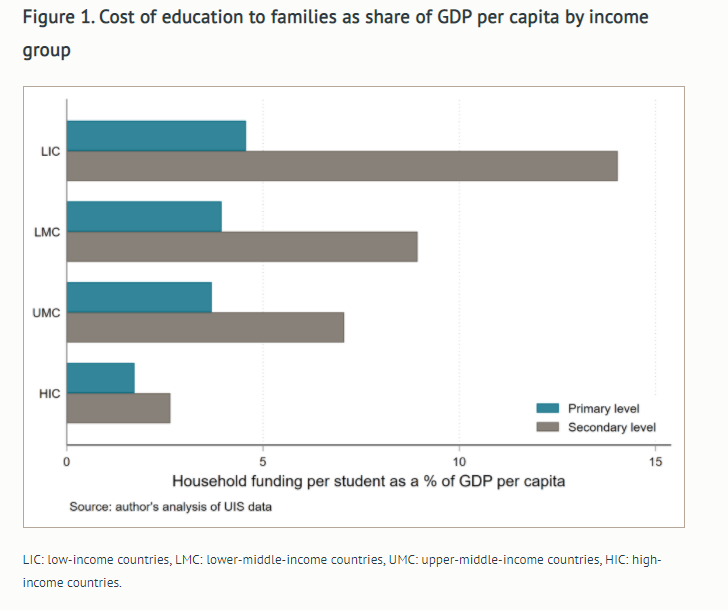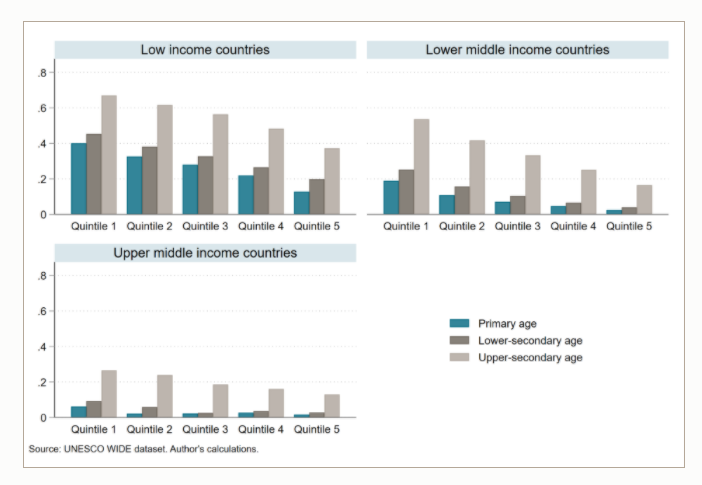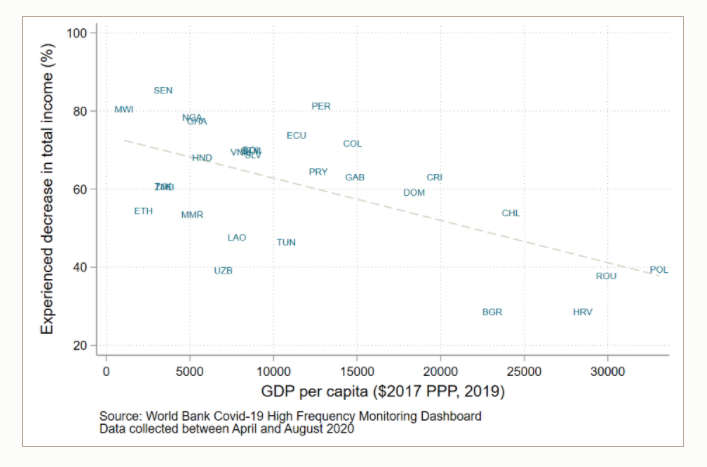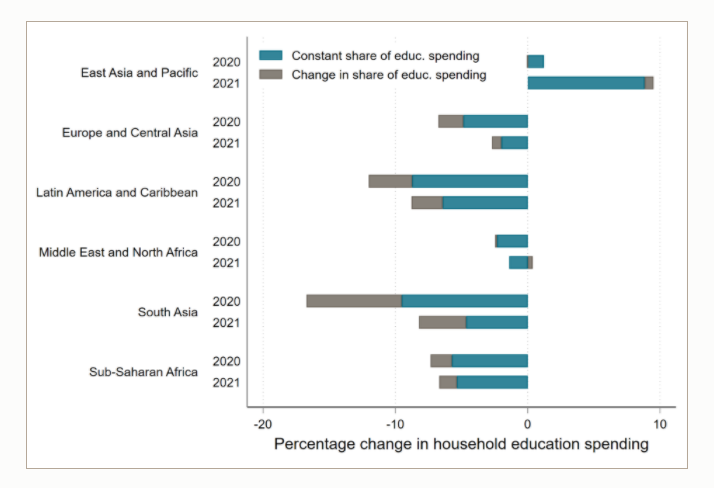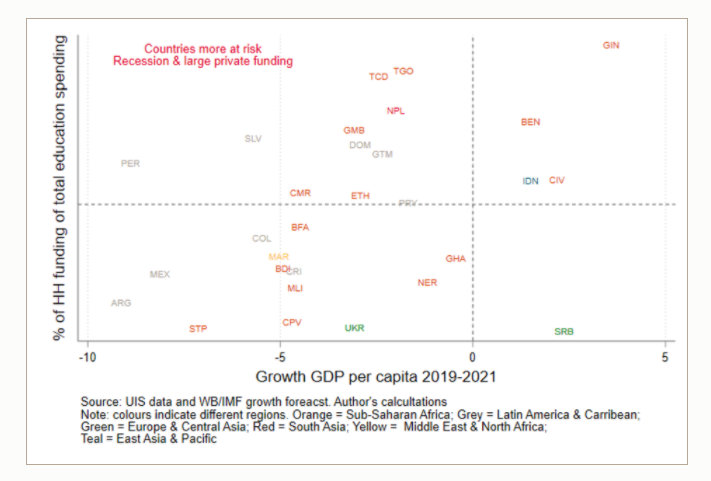@SFCarvalho_edu , @AnaMinardi1 and I have been looking at what could happen to household education spending following the Covid-19 economic shock.
A short summary thread. https://twitter.com/CGDev/status/1334906178665664512
https://twitter.com/CGDev/status/1334906178665664512
A short summary thread.
 https://twitter.com/CGDev/status/1334906178665664512
https://twitter.com/CGDev/status/1334906178665664512
In developing countries, education tend to be expensive relative to income and families contribute to a large share of total education spending (up to 30% in some very poor countries).
As a result money is a barrier to education cited by many families. In all regions of the world and across every level of education, poor kids are less likely to go to school.
But, the IMF and WB are predicting a large recession in developing countries (-3.3%) and evidence from phone surveys show that poor countries are being hit harder with >80% reporting a loss of income.
Incomes per capita will still be below their 2019 level in 2021.
Incomes per capita will still be below their 2019 level in 2021.
This will increase drop outs and probably widen wealth and gender inequalities. The WB had predicted 6.8 million extra drop out in June assuming a much milder economic slowdown (-1% instead of -3.3%). http://pubdocs.worldbank.org/en/798061592482682799/covid-and-education-June17-r6.pdf
It will also decrease dramatically how much households spend on education. Based on foreacsted economic shocks and income elasticities of education spending, we predict a drop of 7 to 17% of private education spending in South Asia, Latin America and Africa.

 Read on Twitter
Read on Twitter